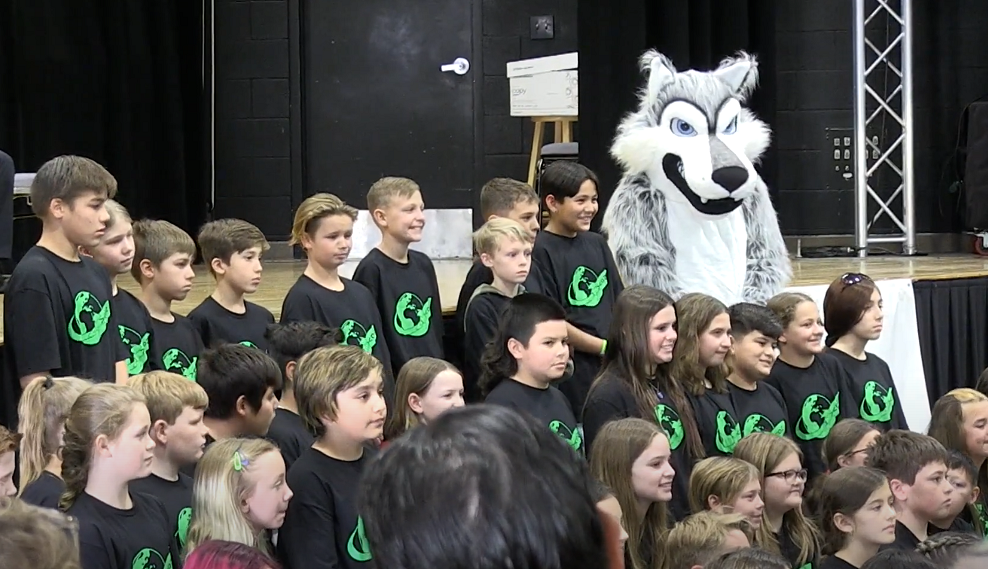
NOVA Principles Foundation: Good Values for a Better Future
NOVA Principles Foundation works to instill values that have long guided youth in the right direction, but that may have fallen by the wayside for some youth sectors as a result of negative influences. The positive outcomes for of this program demonstrate that values never go out of style and remain worthy of revival until today. From our standpoint, such values were and will always be the mainstay of leading kids to the right track to become successful adults and members of society. As such, we were glad to have a chance to support the NOVA Principles Foundation by way of our small grant program.
We spoke with NOVA Principles Foundation Executive Director Lyman Gifford to learn more about this work:
Kars4Kids: Tell us about your founder and how NOVA came into being. Why do you use law enforcement officers to teach your classes?
Lyman Gifford: The NOVA Principles program was created in March of 2003 by two individuals, Sgt. Charlie Wakamatsu and Dr. Paul Jenkins. At the time of this creation another program was being used in local schools. Due to some changes in the program, it was determined the program no longer met the needs of both the local police department and the schools. One of the most significant changes including moving the existing program to junior high and high schools. Professional educators felt there was a significant need for a program at the elementary school level.
In cooperation between the local schools and the police department, a search began for a replacement. After an extensive search, no replacement program was found. Sgt. Wakamatsu shared with Dr. Paul the Orem Police Department project he was tasked with developing. During the early development period for NOVA Principles, Sgt. Wakamatsu and Dr. Paul Jenkins, a Child and Family Psychologist, worked together. Dr. Paul recognized his extensive experience with the State of Utah Program of Youth Reclamation Incorporated (YRI) would provide significant understanding. Together, they worked to ensure the new program was founded upon sound principles (values). A requirement of each principle chosen is that they are supported through outcome research and clinical observations. Cognitive psychology practices are a vital part of the NOVA Principles program.
Kars4Kids: Can you tell us about the demographic of the participants in your program?
Lyman Gifford: The primary curriculum is designed to target young people in scholastic grades 5 or 6. All students are included on a voluntary basis with the permission of their parents.
An enhanced curriculum is available for junior high and high school students in cooperation with local schools within their health, social studies, or homeroom class.
The majority, over 85%, live in urban areas of the state. 1,295,488 of Idaho youth ages 11 to 17 comprise 10.7% of the population. The median household income is $56,607, 9% lower than the US median of $62,175 (June 2018). According to the Annie E. Casey Foundation Kids Count Data Center (2017), 16% of these youth live in poverty. 7% of Idaho youth live in extreme poverty. Of these youth, 26% are raised by a single parent, and 15% live in homes receiving public assistance. 59% of these youth participate in free and reduced lunch programs.
| Risky Behaviors/Choices | Participants |
| The Anne E Casey Foundation, Kids Count Data Center
2015-2016 Teens aged 12-17 |
|
| Abused alcohol or drugs in the past year. | 53,000 – 5% |
| Illicit drug use, other than Marijuana. | 30,000 – 3% |
| Binge drinking. | 54,000 – 5% |
| Cigarette uses in the past month. | 31,000 – 3% |
| Marijuana use. | 58,000 – 6% |
| Juvenile Arrests | 49,331 (9.5% Youth (Charged as Adult)) |
| Sampling: Murder, Manslaughter, Rape, Assault, Robbery | 2,935 (5.8% Youth) |
| Center for Disease Control | |
| Teen Suicide (2011 – 2015) | 623 (19.4 % of all suicides) |
| JAMA Pediatrics | |
| Sexting Behavior Among Youth 11-18 | 1 in 4 |
Kars4Kids: NOVA Principles are evidence based, correct? Can you tell us something about the evidence?
Lyman Gifford: NOVA Principles Program is built upon enduring psychological principles.
Preventative programs need to include psychoeducational training in order to reduce the likelihood of future poor choices, or risky behavioral involvement. “A number of predictors have been identified in the literature as being significant precursors to juvenile delinquency. Some of these predictors are socio-economic deprivation, poor parenting, family deviance, school problems, attentional or hyperactivity problems, and antisocial child behavior.” (Farrington 1990)
Significant research exists in this area.
Additionally, NOVA Principles Foundation is currently working with the Brigham Young University’s Good Measures Program. This group is performing a thorough review the NOVA Principles Program and its outcomes. As part of this review, enhanced evaluation processes have been implemented. These enhanced evaluation processes will allow us to show the evidence of our outcomes more fully beyond what currently exists.
The program is founded upon sound principles (values). A requirement of each principle chosen is that they are supported through outcome research and clinical observations.
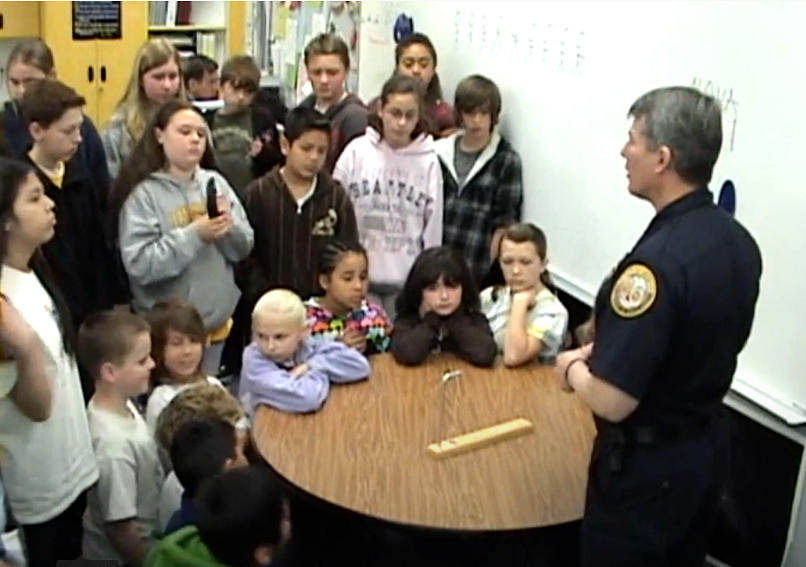
Kars4Kids: What skills do students come away with after taking the NOVA program?
Lyman Gifford: The skills imparted through the NOVA Program are as follows:
- Participants demonstrate a working understanding and knowledge of the five NOVA Core Principles and ten NOVA Applications, and will develop their own purpose, goals, and plans for incorporating these principles moving forward.
- Participants express their intention and commitment to avoid risky behaviors (i.e., drugs, alcohol, tobacco, vaping, bullying, angry acting out, poor media choices, and etc.) as a result of their involvement in the NOVA Principles Program.
- Participants express increased awareness and appreciation for the knowledge they have gained through the program and their commitment to apply the principles they have learned through a written NOVA Constitution.
- Participants demonstrate understanding of and ability to apply improved thinking and problem-solving skills consistent with the NOVA Principles and Applications.
- Participants engage in (and typically initiate) increased family communications and discussions about risky behaviors, and the proactive application of the principles they are learning.
- Participants develop positive perceptions and relationships with law enforcement through their interactions with NOVA instructors.
- The long-term prevention outcomes of the NOVA Principles program are that young people remain substance free and appropriately handle other risk factors well into the future as they continue to practice and apply the principle-based decision-making skills they learned in the program.
- Individuals, families, and community become stronger as participants share the five NOVA Core Principles with their families and others.
- Principle-based decision-making skills are a protective factor that support the long-term effect of reduced community crime and other risky behaviors including the use of alcohol and other drugs.
- Communities experience improved positive relationships with local law enforcement.
Kars4Kids: What do kids learn from NOVA in regard to media, for instance what they see on their various screens?
Lyman Gifford: Participants are taught that media is a powerful influence on us all. Media provides communication, information, and entertainment. TV, movies, music, video games, print, art, internet, social media, and VR are types of media. Media is powerful and can influence how we think, feel, and behave in either positive or negative ways.
There are two NOVA Applications to assist participants, The Fire Application and The Harvest Application. Here is what our participants learn in regard to these applications:
The Fire Application: Some say fire is good, others say it is bad, in reality fire is powerful. Is fire good? It heats homes, cooks food, powers engines. Is fire bad? It destroys forests, burns communities, kills people. Fire is powerful. It has power to bring about both positive and negative outcomes. Fire is an analogy for powerful things like media, drugs, thoughts, feelings, behavior, etc. I will handle “Fire” carefully and appropriately.
The Harvest Application: What I put in is what I get out. The seeds I plant and nurture determine what grows and becomes my harvest. This is true for a garden, and it is true with my mind. Everything I see, hear, and do become the seeds I plant in my mind. Good positive seeds bring good outcomes, whereas harmful negative seeds bring negative outcomes. WARNING–Weeds thrive if allowed to grow and can choke out all that is good. I will plant and nurture good positive seeds in my mind.
Influences of Media
Positive Influences: Wholesome and uplifting entertainment, educational materials, useful news and safety information.
Positive Media is linked to: Improved relationships, better mental health, and higher levels of success in school.
Negative Influences: Graphic and excessive violence, vulgarity and profanity (dirty talk/swearing), indecent and obscene (nasty) material.
Negative Media is linked to: Desensitization and addiction to violence and indecent material, antisocial behavior, lower grades in school.
My Safe Media Guidelines
- I will limit media use to a family room environment and avoid media devices in my bedroom.
- I will discuss with my parents what type of media is appropriate for me to watch, listen to, and play.
- I will use media filters to block harmful or inappropriate content from my devices.
- I will limit the time I spend consuming media to make room for positive opportunities.
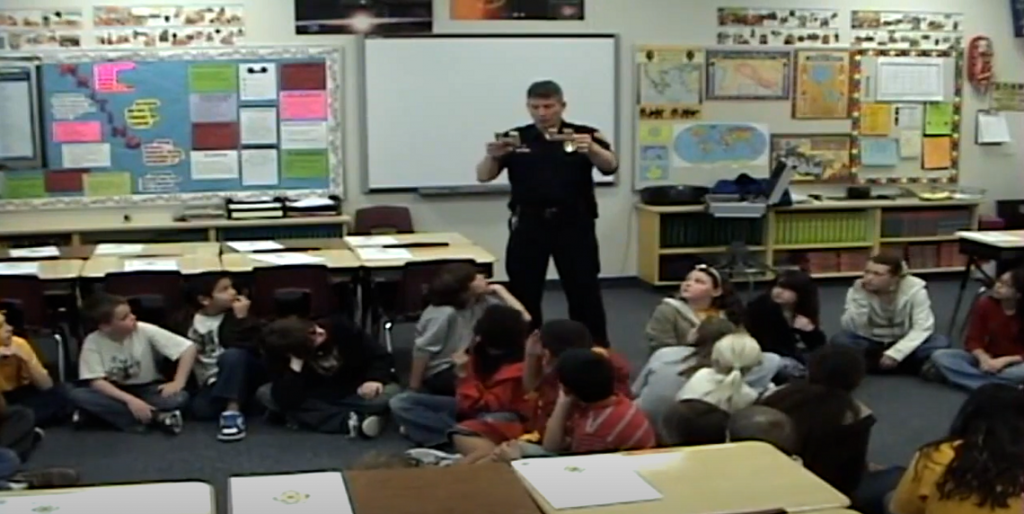
Kars4Kids: Your mission statement includes the idea of helping your participants to “internalize good values.” What are some of the good values that NOVA hopes to instill in its young participants?
Lyman Gifford: The five NOVA Core Principles (Values) and definitions participants memorize are:
- Accountability – I own my thoughts, feelings, choices, and actions.
- Positivity – When I choose Positivity, I experience success and happiness.
- Knowledge – Knowledge creates opportunities.
- Work – My path to excellence requires work.
- Respect – I respect myself, others, and everything around me.
Kars4Kids: What can you tell us about the “lone wolf” application?
Lyman Gifford: We are very careful to include NOVA Lone Wolf versus Lone Wolf. Lone Wolf is often used by law enforcement for a lone shooter thus the importance of this distinction.
This application is defined as: NOVA Lone Wolf – I courageously stand against those who want me to do wrong.
Part of the teaching includes: If someone wants me to do something harmful, dangerous, or wrong, I will tell them “No” and leave. I will be a NOVA Lone Wolf whenever necessary.
Kars4Kids: Why did you name your foundation NOVA, and possibly related: why do you have instructions for building an air rocket launcher on your website?
Lyman Gifford: NOVA is an acronym for Nurturing, Opportunities, Values, and Accountability.
- Nurturing is to encourage positive development & growth.
- Opportunities are good things that come your way. Recognizing and seeking good opportunities should be an essential focus in everyone’s life.
- Values are sound principles, ideals, and standards that one believes in and lives by.
- Accountability is being responsible for your choices and actions.
There is no connection between the acronym and the rocket instructions. As part of the lesson materials, one of the activities is to build a model rocket. Some classrooms choose to make rockets that can be launched on the playground. The building of rockets is one of the activities used to assist students in their learning of lifelong living skills.
“Active learning is an effective tool to teach not only information, but lifelong living skills. Through the process, an individual can internalize information and assume responsibility for their decisions regarding personal lifestyle choices.” (Jackson, 1993)
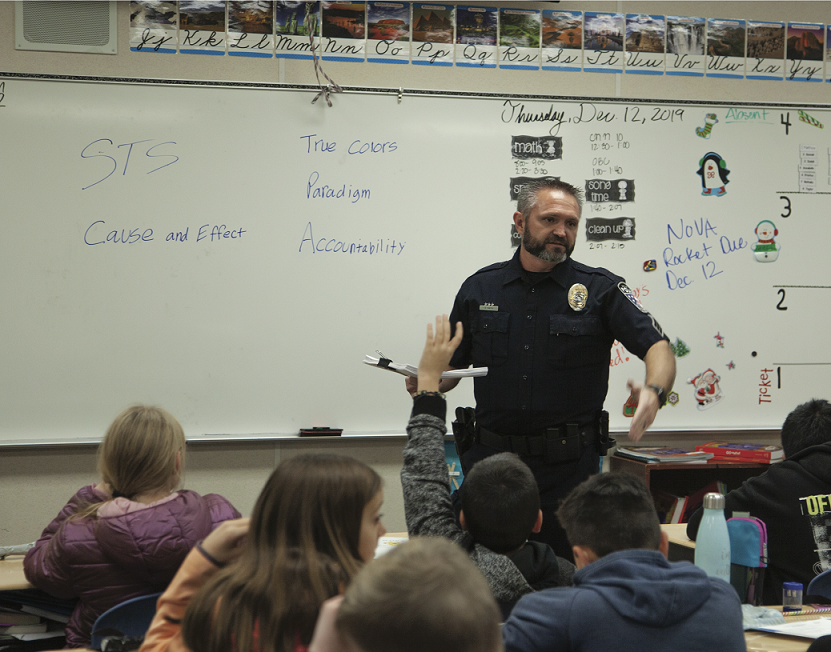
Kars4Kids: How did the pandemic affect your operations?
Lyman Gifford: The NOVA Principles Program is taught by instructors face-to-face inside school classrooms. As a result of the pandemic, access to classrooms became limited or closed to instructors. For some classrooms, it was an entire year before our instructors were allowed back inside the schools.
Some cities and counties would not allow their NOVA officers to function as instructors due to the increased COVID exposure risks. Additionally, many departments were struggling with officers infected with COVID and unable to work. In some areas, we offered virtual instruction. Again, not all of the areas in which we operate would allow for this.
Another area of impact was in regard to training for new instructors. We train 20-30 new instructors annually. All training is held in-person over a four-day period. As a result of the pandemic, all in-person training was cancelled for the first year.
It became clear that alternative methods of delivery had to be developed. Video calls had already been used on a limited basis. An expanded use of video calls became necessary. Since some of us had extensive experience using video calling (Zoom software), we offered training on this technology to educators and instructors. All instructor training was resumed virtually. As a result, we discovered we could provide the same quality instructor training virtually as we previously had provided in the face-to-face environment. Costs to departments were significantly lessened through virtual training since the cost of travel, meals, and overnight stays were eliminated. Our training is now offered on-demand with the course faculty providing a live virtual wrap-up.
Financially, the impact was significant. Fundraisers were cancelled; grants were diverted away from our program towards COVID-impacted needs; and program supplies were not purchased by departments. Our 90-day cash reserves were depleted.
We are now working to replenish our cash reserves. We are also working to help departments become operational in schools once again.
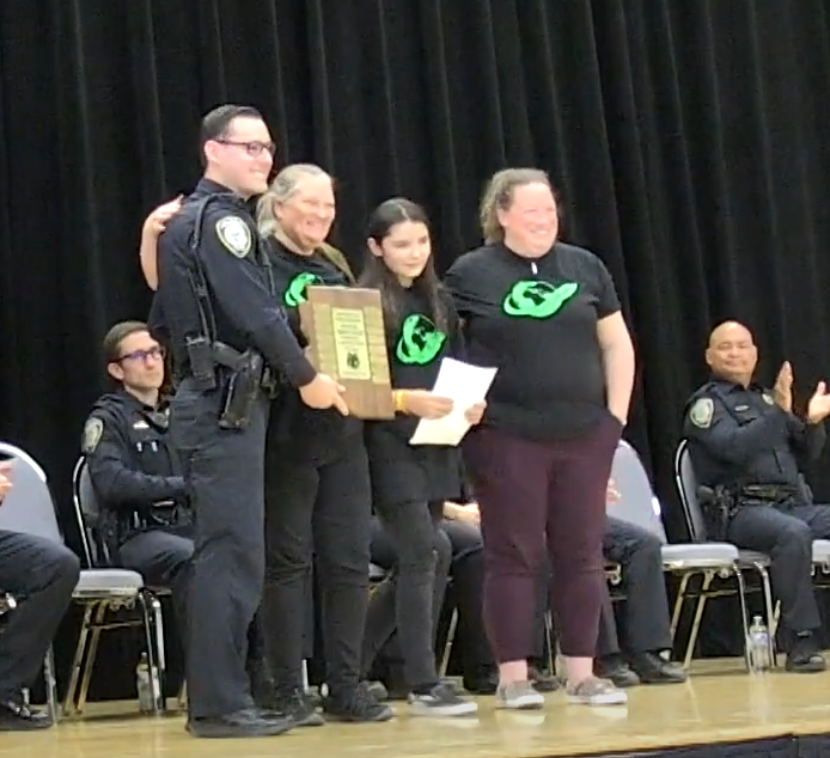
Kars4Kids: What’s next for the NOVA Principles Foundation?
Lyman Gifford: NOVA has been working to expand into additional states, local cities, and counties. This year we will enter our seventh state. It takes about two years for a department to go from learning about the program to implementation. Working with government agencies is not a quick process. We will continue to work with local agencies within the targeted states for expansion and implementation.
We have had multiple inquiries in regard to bringing the NOVA Principles Program to locations across the US. Some inquiries have come from international locations, as well. With our successful implementation for on-demand training of instructors, we are moving toward implementing similar processes for participants. Each of our lessons will become a series of modules families can subscribe to. The on-demand format will allow these participants to join the NOVA Principles family through NOVA Central (our on-line format). Families can then work on modules and learn the same lessons that are taught in the classroom. We are currently working with existing instructors to record the various lessons.
Bibliography
Jackson, T. (1993). Activities That Teach. Publishers Press.